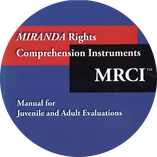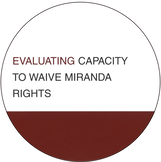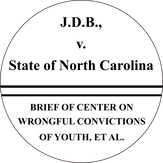Miranda Rights Research.
The Juvenile Justice Research and Reform Lab conducts research on juveniles’ Miranda rights comprehension and youths' capacities to waive rights during police questioning. Through this work, the JJR&R Lab produced a forensic assessment tool, data to inform best practices in Miranda waiver evaluations, and policy recommendations to inform legislative and judicial changes to protect youths' rights during interrogation.




